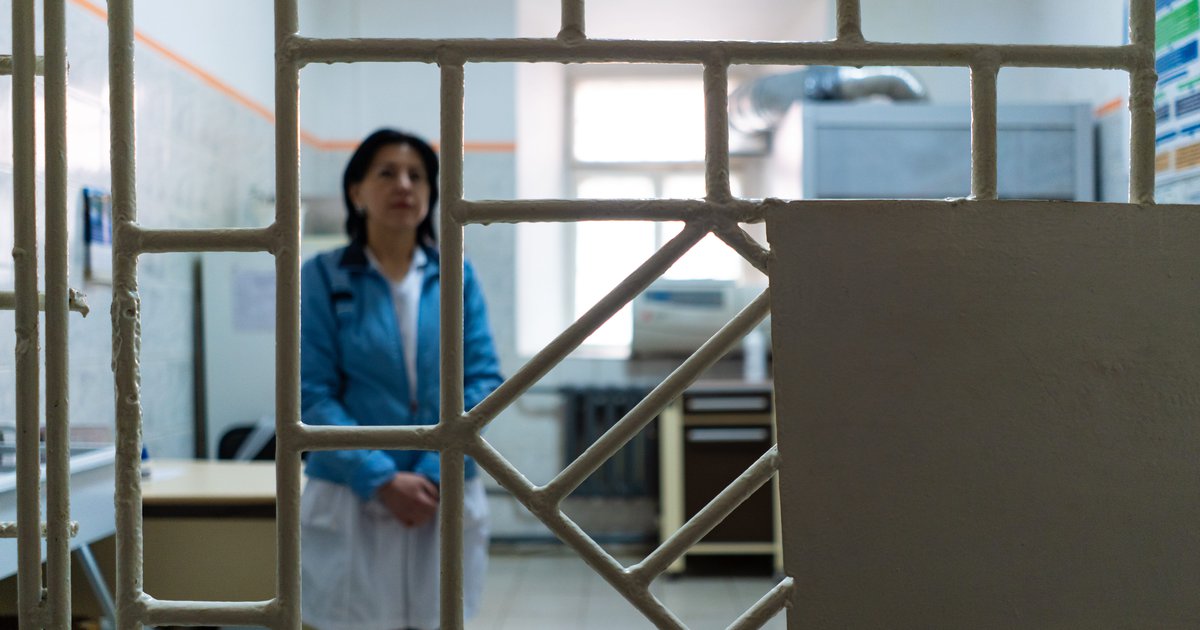
At the Chortkiv pre-trial detention centre in the Ternopol region, there is no room which can be separated from the rest of the facility; this means that people coming out of court and after investigative operations aren’t able to be isolated for 14 days, as they should: they have to wait in pre-trial areas, which is effectively to be a risk to other inmates. As there is also no isolation space for those who have contracted the virus, one person’s illness can turn into a threat of mass infection.
An illusory amnesty
In an attempt to avoid a coronavirus epidemic, more than 26 countries worldwide have decided to release prisoners. In some cases, this means an early release for people in a risk group; in others, a pardon or amnesty. In Europe, this release policy has been followed by Germany (where the decision is taken by federal states individually), France, Italy, Austria, Portugal, Cyprus, Belgium, Norway, the UK (especially Northern Ireland and Scotland), Ireland, Slovenia, Albania, Belarus, and Azerbaijan.
According to Helsinki University researcher Olga Zeveleva, who studies world practice of the war on coronavirus in prisons, research hasn’t shown any link between the early release of prisoners and the type of regime in a given country: “The release policy isn’t necessarily associated with the more democratic states. It doesn’t happen in Finland, for example, whereas Iran has carried out an extensive amnesty. Judging by the preliminary analysis of our research group, we can say that in countries where prisons are particularly full, governments release prisoners more often and more quickly”.
Despite the fact that Ukrainian legislation permits annual amnesties of prisoners, the last amnesty conducted by its president was signed in 2017, although amnesties took place every year until 2011 and with the spread of the coronavirus, some have begun talking about revisiting this practice.
On 27 April, the Ukrainian parliament, on the initiative of its PM introduced an Amnesty Bill, aimed at averting the spread of the coronavirus. The Justice Ministry has announced that if it is passed into law, about 3,000 people will receive amnesties. Another bill – on annual amnesty legislation – had already been introduced on 6 March. According to standard practice, on average 900 more people convicted of non-violent crimes could also be prematurely released. In other words, if both bills are passed into law over 10 percent of Ukraine’s current prisoner population will be freed.
The bill relating to coronavirus amnesty provides for early release in various situations: prisoners with serious illnesses and disabilities, those with underage children and elderly convicts, and also takes into account the length of the sentence already served. The greater part of those amnestied will have served a minimum quarter of a sentence for non-violent crime (1881 people).
According to Ukraine’s Helsinki Human Rights Union Oleksandr Pavlichenko, a rights group worked on the coronavirus amnesty bill and paid particular attention to the organization of the prisoner release operation: transport to their homes in quarantine conditions, observation points. “We wouldn’t just throw them out onto the street. And the system was designed for streamlined release”, declares Pavlichenko.
The experts are, however, less hopeful about the coronavirus release bill being passed. It was introduced in parliament on 27 April, but since then only one committee has examined and supported it (the Human Rights Committee already passed it on 7 May).
“The Ministry of Justice has the political will to pass the bill. They are drafting explanatory leaflets to convince MPs to vote for it. But there’s a lot of scepticism around the bill. The 2020 amnesty bill will, I think go through. But that’s standard legislation, irrespective of the coronavirus”, human rights activist Pavlichenko tells me.
Pavlichenko’s co-activist Yevgeny Zakharov believes that both amnesty bills have been well drafted and should be passed into law as soon as possible. He feels, however, that there is little chance of this happening: “The MPs aren’t behind them: they all complain that they are unpopular and are only interested in their own popularity ratings. I’m afraid that we can expect not just an outbreak of the epidemic in institutions and organisations, but protests among prisoners as well. They, after all are at a very high risk of infection: the epidemic isn’t waning, tests aren’t being carried out and the usual measures to protect the public are simply not available to prisoners. Nor is access to treatment. Lots of inmates are hoping at least for an amnesty, but as soon as they realise that there isn’t going to be one, things are going to get nasty.
Translated from Russian by Liz Barnes
PrintMarharyta Tulup | Radio Free (2020-06-08T16:49:02+00:00) COVID-19 has reached Ukraine’s prisons. Retrieved from https://www.radiofree.org/2020/06/08/covid-19-has-reached-ukraines-prisons/
Please log in to upload a file.
There are no updates yet.
Click the Upload button above to add an update.